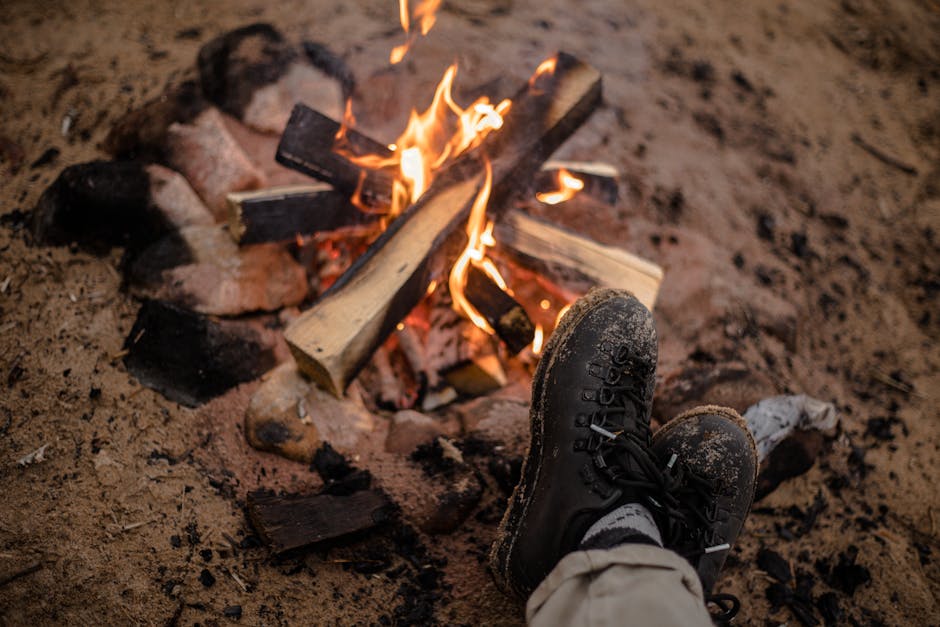Camping and the Environment: How Can We Make a Positive Impact?
Camping is one of my favorite ways to disconnect from the hustle and bustle of daily life and reconnect with nature. There’s something so peaceful about being surrounded by the great outdoors, breathing in the fresh air, and falling asleep under the stars. However, as much as I love camping, I also recognize the impact it can have on the environment. That’s why I’ve made it my mission to make my camping trips as eco-friendly as possible. Here are some tips that I’ve learned along the way that can help us all make a positive impact while enjoying the great outdoors.
Choose Your Campsite Wisely
One of the most important things you can do to make your camping trip more eco-friendly is to choose your campsite wisely. Look for designated campsites in national or state parks, as these areas are specifically set up to minimize the impact on the environment. If you’re camping in a more remote area, make sure to follow Leave No Trace principles and choose a spot at least 200 feet away from water sources. This will prevent contamination and disturbance of local wildlife.
Use Reusable and Biodegradable Products
When packing for a camping trip, it can be tempting to grab convenient disposable products. But these items often end up in landfills, polluting the environment. Instead, opt for reusable products such as water bottles, utensils, plates, and cups. You can also find biodegradable versions of these items, which break down naturally and have a minimal impact on the environment. Plus, using reusable and biodegradable products will save you money in the long run.
Minimize Waste
Another way to make your camping trip more eco-friendly is to minimize waste. This means packing only what you need and avoiding single-use items. Instead of buying pre-packaged food, try to bring your own reusable containers and cookware. Not only will this reduce waste, but it will also save you money and give you more control over the ingredients in your meals. And remember, always properly dispose of any waste and pack out what you pack in.
Bring a Portable Trash Bag
Speaking of waste, it’s crucial to properly dispose of any trash while camping. But sometimes, it can be challenging to find a trash bin in remote areas. That’s why I always bring a portable trash bag with me. This not only makes it easier to collect and dispose of trash, but it also prevents littering and keeps the environment clean.
Use Natural Resources Responsibly
When camping, it’s essential to use natural resources responsibly. This includes not damaging trees or plants, avoiding disturbing wildlife, and properly disposing of human waste. If there are designated fire pits, use those instead of creating your own. And always make sure to fully extinguish any fires before leaving your campsite. Also, avoid using soap or other chemicals in natural water sources, as they can be harmful to aquatic life.
Leave No Trace
The Leave No Trace principles are a set of guidelines designed to help campers and hikers minimize their impact on the environment. These principles include things like packing out all trash, minimizing campfire impact, and respecting wildlife. It’s essential to follow these principles to ensure that the areas we love to explore can be enjoyed by future generations as well.
Support Local and Sustainable Businesses
When planning a camping trip, consider supporting local and sustainable businesses. This could mean buying your food and supplies from nearby farmers’ markets or choosing eco-friendly camping gear from sustainable brands. Not only will this support the local economy, but it will also reduce the carbon footprint of your trip.
Respect Wildlife
One of the most exciting parts of camping is being able to observe wildlife in their natural habitat. However, it’s essential to remember to respect their space and not disturb them. This means keeping a safe distance, not feeding them, and properly disposing of any food waste. It’s also crucial to remember that you are a visitor in their home, and we should do our best to minimize our impact on their environment.
Spread Awareness
Lastly, one of the most significant ways we can make a positive impact is by spreading awareness about the importance of eco-friendly camping. Share your experiences and tips with others, and encourage them to follow in your footsteps. The more people who are mindful of their impact on the environment while camping, the better chance we have at preserving these beautiful landscapes for years to come.
In conclusion, camping and the environment go hand in hand. By following these tips, we can all make a positive impact and ensure that future generations can enjoy the beauty of nature. Let’s do our part to protect and preserve the




